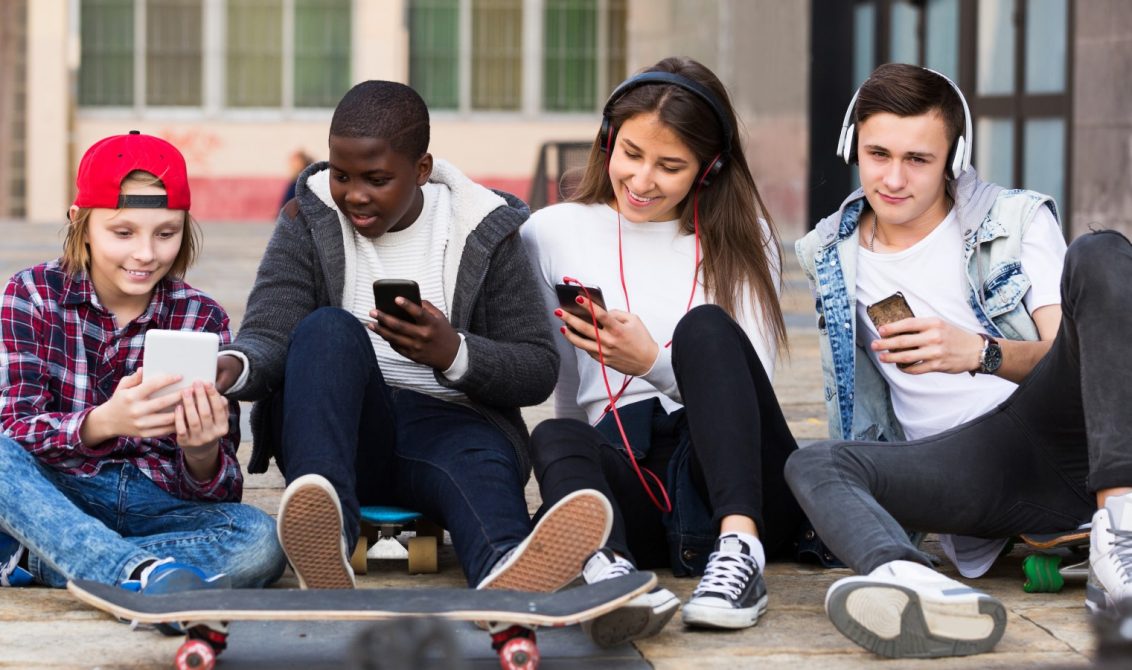
Many schools across the world are enforcing bans on smartphones due to issues such as bullying, cheating and disruption in class. In July 2018, the French government even passed a law banning mobile phones in schools.
But are there any benefits to having phones in class? And is there a way to harness the available technology to enhance our students’ learning?
Let’s dive into the debate and explore both sides of the argument, alongside the attitudes of teachers, parents and students. We’ll also offer some tips on how to prevent the misuse of smartphones in your classroom.
“Yes, mobile phones should be banned in schools…”
They create distraction in class
“… not having a strict policy on mobile phone use during the day is the temptation for students to go on their WhatsApp or Instagram during lessons.”
A 2017 study suggested that over 90% of students use technology in class for purposes unrelated to their work. It’s therefore not surprising that teachers often feel in competition for students’ attention.
We spoke to Olivia Hunt who teaches geography at the British School of Barcelona and told us she agrees with the ban.
“As you can imagine, the problem with not having a strict policy on mobile phone use during the day is the temptation for students to go on their WhatsApp or Instagram during lessons,” she says.
Mobile phones reduce productivity
One study from the London School of Economics showed that banning mobile phones in schools had a positive effect on test scores. They surveyed schools in four English cities and found that student performance in high stakes exams significantly increased.
Allowing phones contributes to bullying
“[when you ban mobile phones] the amount of online bullying and peer-on-peer abuse decreases.”
Before mobile phones and internet connections, bullying was limited to face-to-face physical and verbal abuse. Now, cyberbullying can also follow students home, where they should feel safe. What’s more, students can also take photos and videos and target other students and teachers anonymously.
Olivia says, “It’s so important that they don’t have their phones out in school – not just because of the distraction in class, but there are also problems with students filming each other or filming the teachers, taking pictures of the teachers…[when you ban mobile phones] the amount of online bullying and peer-on-peer abuse decreases.”
Mobile phones also stir up other issues of privacy, safety and etiquette online. Issues like theft in the playground, sharing adult content, and the potential for blackmail.
‘Mobile phone addiction’ creates mental health issues
“It’s a much needed eight-hour break from their mobile phones.”
Some studies suggest a possible link between ‘mobile phone addiction’ and negative psychological effects such as sleep deficit, anxiety, stress and depression. A ban on mobiles would help reduce these risks.
As Olivia said, in an increasingly online world, ‘school is a much needed eight-hour break from their mobile phones.’
“No, mobile phones should be allowed in schools…”
They can be used to enhance learning
“With increased access to learning resources, tools and information, students are drawn deeper into a topic than ever before.”
One study in the UK argues that students are already using their mobile phones in school, so why not use them to enhance learning? It suggests that students found it both ‘convenient’ and ‘useful’ to have phones in class and used them for a multitude of activities such as research, organisation and calendars.
Technology is often reported to have a positive effect. One study entitled Teaching in a Digital Age advises that through technology, students are “drawn deeper into a topic than ever before. They can direct their own learning.”
Classroom tools that require student interaction with their mobile phones are also popular with teachers and students. Apps such as Kahoot, Quizlet, Ed Puzzle and Mentimeter were just a few of the favourites.
We are preparing them for life after school
“They need to use apps in the classroom as part of the process… basically all the things that small businesses do.”
Peter Freeth, a parent with teenage daughters spoke to the BBC and said that schools should be doing more to incorporate mobile phones in class, to help students prepare for their future work contexts.
“Schools expect children to do their homework on computers. They need to use apps in the classroom as part of the process, to watch videos, stream content, log attendance and participate in study groups. Basically, all the things that smart businesses do.”
Providing a ‘tech break’ can be beneficial for students
A recent study into ‘off-task’ activity on phones in classrooms found that some students find a brief distraction a good way to help them refocus for the rest of the lesson.
Elena Neiterman, one of the authors of the study says, “They [students] felt it would be useful for them to maybe do their own thing for a couple minutes and then come back to the class.”
Ways to prevent misuse of mobile phones in class
School policy varies between countries and schools. Some have already decided on a complete ban. Others have opted for an ‘out of sight, out of mind approach’. If your school doesn’t have a strict policy in place, here are some tips to help you keep mobile phone use under control.
-
Create a class contract: Class contracts can be useful in all areas of classroom management, but setting the boundaries of mobile phones early on can be useful later down the line.
-
Use a traffic light system: A green sign on the classroom door tells students to get phones out ready face up on the desk. Yellow sign and phones should be faced down and not used until instructed. And red sign – phones won’t be needed and should be kept in bags.
-
Collect phones in at the beginning of school: Some schools opt for a hand-in at the start of the day and return at the end. That way students can still contact parents before and after school if necessary.
-
Block WiFi access: Teacher Michelle Dooley from Ireland told us that in her school “WiFi is blocked for students. If I want to use mobile phones in class and they require access to the internet, I can tell the IT department to unblock it.”
-
Educate students about multi-tasking: Educating students about the negative effects of multitasking can help discourage students from using their mobiles.
-
Invite experts to talk about internet safety: Talk to your school about creating workshops with police and mental health experts to discuss issues of theft, safety and privacy.
-
Provide students with a tech-break: If you want to use mobile phones but are worried about students checking their notifications every five minutes, include a designated tech-break halfway through the class. Give students 60 seconds where they can check if they’ve missed anything important before going back to work.
What’s your opinion on the big mobile phone debate? Are smartphones allowed at your school? Do you have any other tips for preventing misuse? Let us know in the comments.
References
- Bolkan,S. Griffin, D.J. (2018) ‘Catch and hold: instructional interventions and their differential impact on student interest, attention, and autonomous motivation’.
- Beland, Louis-Philippe & Murphy, Richard, 2016. ‘Ill Communication: Technology, distraction & student performance.’
- Neiterman, E. & Zaza, C. (2019). ‘A Mixed Blessing? Students’ and Instructors’ Perspectives about Off-Task Technology Use in the Academic Classroom.’ The Canadian Journal for the Scholarship of Teaching and Learning
- Bates, A.W. (2015) ‘Teaching in a Digital Age: Guidelines for Designing Teaching and Learning’ Vancouver BC
- Walker, R. (2013). ‘I don’t think I would be where I am right now’. Pupil perspectives on using mobile devices for learning. Research in Learning Technology
- Thomée, S. (2018) ‘Mobile Phone Use and Mental Health. A Review of the Research That Takes a Psychological Perspective on Exposure’

